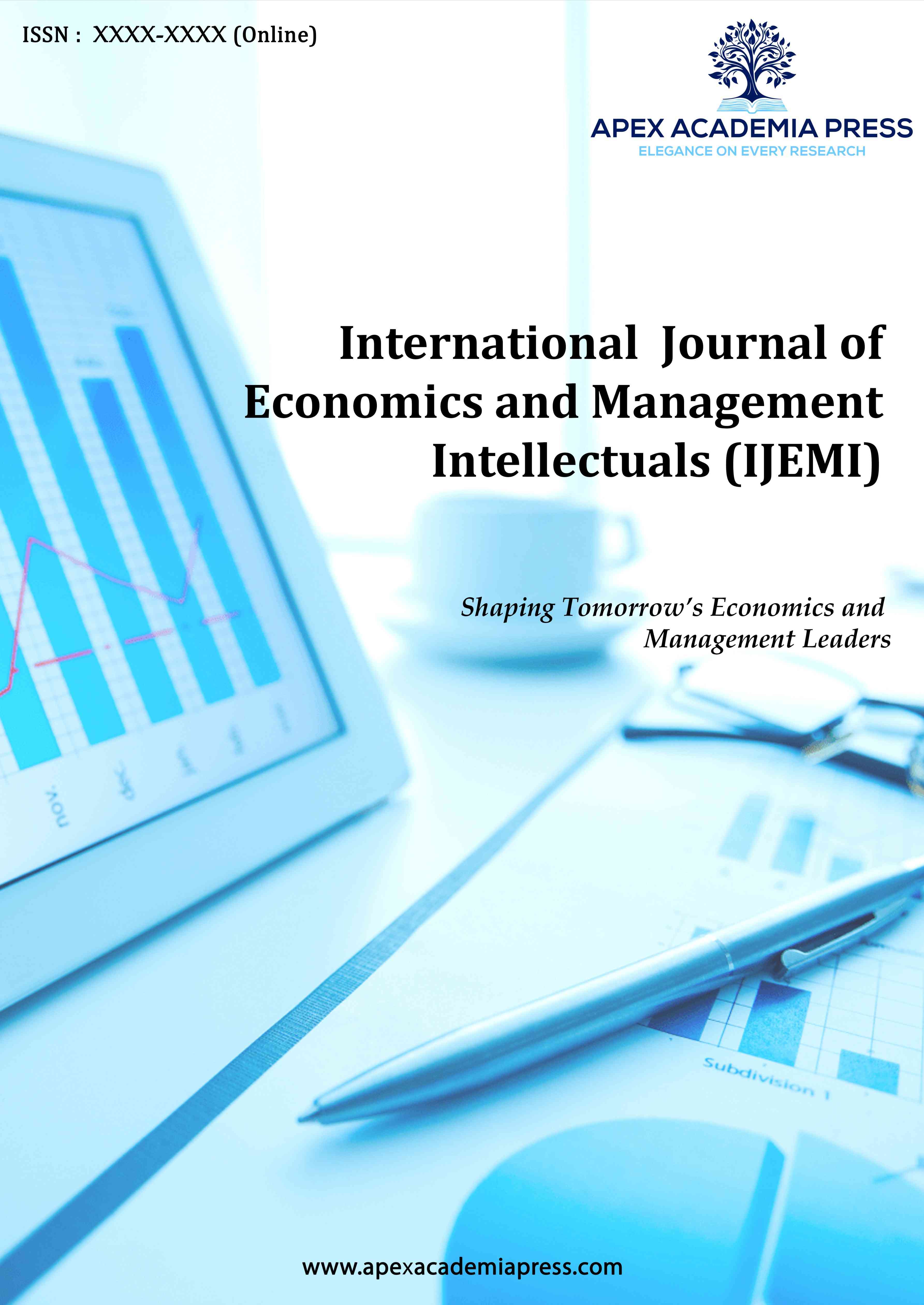International Journal of Economics and Management Intellectuals [IJEMI]
Globalization and Its Effects on Developing Economies
Authors : Dr. Amina Okafor
Open Access | Volume 1 Issue 1 | 2024
https://doi.org/10.63665/ijemi_y1f1a003
How to Cite :
Amina Okafor, "Globalization and Its Effects on Developing Economies", International Journal of Economics and Management Intellectuals [IJEMI], 2024, 1(1): pp. 19-28.

Abstract
Globalization has had a strong impact on the economies of the world, particularly those of developing countries. The intricate effects of globalization on the economies of developing countries, both the opportunities it presents and the dangers it poses, are what this paper is about. Theory on globalization is deliberated upon based on its economic, social, political, as well as its technological context and how it has contributed towards its achievement in gaining economic development, employment opportunities, and foreign markets. Yet, the paper examines the negative side of globalization such as income inequality, environment deterioration, and undermining of culture. Case studies of various parts of the globe, including Asia, Africa, and Latin America, show how the impact of globalization varies geographically. The paper also analyzes how global institutions are shaping the process of globalization and makes forecasts about its future direction. Finally, the paper concludes with recommendations to developing economies on how to maximize the gains from globalization and minimize its losses.
Keywords
Globalization, Developing Economies, Economic Growth, Foreign Direct Investment (FDI), Job Creation, Income Inequality, Technology Transfer, Cultural Erosion, Environmental Impact, International Organizations, Emerging Markets, Trade, Global Economic Shocks.
Conclusion
A. Summary of Key Findings:
Globalization has brought far-reaching effects on the economies of developing countries, both positive and negative. Positively, globalization has provided previously unimaginable opportunities for economic development, job creation, and access to international markets. Developing countries have experienced spectacular advances in infrastructure, foreign investment, and technology transfer, all of which have improved living standards in certain segments of society. These issues notwithstanding, however, globalization has also increased inequalities, leading to uneven development at the national and international level and exposure to global economic crises. Poverty, degradation of the environment, and isolation remain critical issues for most developing economies that are further increased due to their extensive integration into the global economy. In addition, international competition, cultural homogenization, and foreign capital dependence have endangered the developing nations as they strive towards sustainable development. As globalization increases, the fate of developing economies will be determined by their ability to adapt to these challenges and opportunities.
B. Recommendations for Developing Economies in the Era of Globalization:
In order to counteract challenges and opportunities as a result of globalization, developing economies need to adopt policies that promote inclusive growth, sustainability, and resilience. Above all else, the government needs to establish a good business environment that fosters local enterprise and foreign investment. Along the way, they should also make sure that benefits of globalization are equitably shared among regions, industries, and communities, including rural communities and poor people. This involves investment in education, healthcare, and social protection programs to equip the workforce for the globalized future world. In addition, the emerging economies have to diversify their economies in order not to be overly dependent on a single industry, e.g., oil or agriculture, and achieve resilience to shocks. Lastly, investment and innovation in green technology can assist the emerging economies in capturing new opportunities in the new world green economy.
C. Final Thoughts on How to Balance the Benefits and Challenges of Globalization:
An appropriate strategy with sustainable and inclusive growth needs to balance the pros and cons of globalization. Although globalization can stimulate economic growth and poverty alleviation, it can also enhance inequalities and environmental degradation. Developing economies ought to seek policies that can not only maintain economic growth but also social inclusion and environmental protection. It means adopting policies that control international trade, manage foreign investment, and foster technological innovation while protecting local industries and culture. Lastly, the future of globalization will depend on developing economies' ability to weather fresh global forces, reap the dividend of global interdependence, and manage the conundrums of inequality, environmental responsibility, and political security. As globalization's experience remains to evolve, it would be essential for developing economies to shape their own journey to sustainable growth in a more integrated world.
References
- Sharma, N. K., “Globalization and its impact on the third world economy,” Crossing the Border: International Journal of Interdisciplinary Studies, 2024, 1(1): pp. 21-28. https://ijassh.com/index.php/IJASSH/article/view/406
- Stallings, B., “Globalization and liberalization: The impact on developing countries,” ECLAC, 2001.
- Sufian, F., & Kamarudin, F., “The impact of globalization on the performance of banks in South Africa,” Review of International Business and Strategy, 2016, 26(4): pp. 517-542.
- Takiyar, A., & Rao, N. V. M., “Impact of globalization on human rights: Evidence from Sub-Saharan Africa,” International Journal of Social Economics, 2016, 47(12): pp. 1453-1480.
- Ugbam, O. C., Chukwu, B., & Ogbo, A., “The effects of globalization on African culture: The Nigerian perspective,” IOSR Journal of Business and Management, 2014, 16(4): pp. 62-71.
- Biru, E. A., & Amentie, C., “The impact of globalization on developing countries: A literature review,” International Journal of Advances in Social Science and Humanities, 2024, 12(5): pp. 1-16. https://ijassh.com/index.php/IJASSH/article/view/406
- Mussa, M., “Factors driving global economic integration,” International Monetary Fund, 2000. https://www.imf.org/external/np/exr/ib/2000/041200to.htm
- Gereffi, G., Global Value Chains and Development: Redefining the Contours of 21st Century Capitalism, Cambridge University Press, 2018.
- Herath, H. M. S. P., Liang, C., & Yongbing, C., “Impacts of Regional Trade Agreements (RTAs) on Food Security: A Case of ASEAN Free Trade Agreement,” arXiv, 2014. https://arxiv.org/abs/1407.2677
- Hartmann, D., Jara-Figueroa, C., Guevara, M., Simoes, A., & Hidalgo, C. A., “The structural constraints of income inequality in Latin America,” arXiv, 2017. https://arxiv.org/abs/1701.03770
- Naoaj, Md S., “The Globalization-Inequality Nexus: A Comparative Study of Developed and Developing Countries,” arXiv, 2023. https://arxiv.org/abs/2302.09537
- Islam, S. B., & Mondal, L., “An Empirical Analysis on Remittances and Financial Development in Latin American Countries,” arXiv, 2023. https://arxiv.org/abs/2309.08855